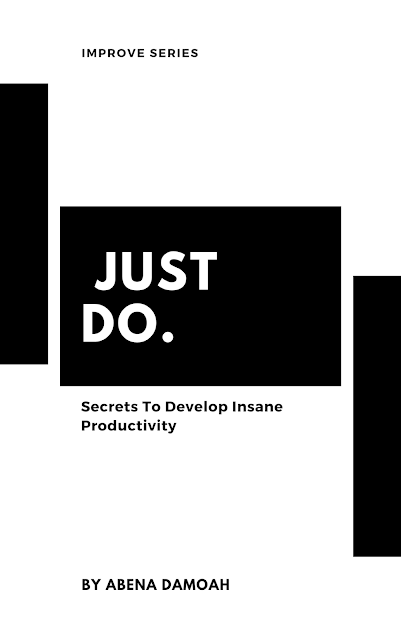How To Skyrocket Your Productivity in 2019
“The effectiveness of productive effort, especially in industry, as measured in terms of the rate of output per unit of input.” [Oxford Dictionary breakdown]
Learning how to make the best use of your time is an art, it is a process. However, you have to start by doing, instead of overthinking, you have to act. I decided to write this book because over the years I have mastered various methods of increasing output. I recently read The Art of Getting Things Done by David Allen. This is one of my favourite quotes from the book:
“If you don't pay appropriate attention to what has your attention, it will take more of your attention than it deserves.”
If you do not consciously think about where your attention is going, you will spend more time on tasks that have little significance. The real work will be left on the wayside. For me, productivity is about getting the important things done. Zooming in on the essentials and ticking tasks off the list. Focusing is easier said than done. However, there are specific methods that you can utilise to achieve optimum focus. Let me tell you a story.
I started writing my first fiction novel five years ago, I would sit down for seven or eight hours and write three pages. I agonised over the reasons why I was finding it difficult to focus and achieve my goal of finishing the book in two months. I decided to go back to the drawing board and analyse where my attention was going. While picking apart my day to day activities, I noticed that I spent a significant amount of time reading emails, preparing food, washing dishes and talking on the phone.
I set myself a challenge, to write 5,000 words a day. I disabled the Wifi, made sure I had food cooked and ready, switched off my phone and left the washing up for later on. I also adopted specific methods during this time to keep myself focused on the task. It worked, by the end of the week, I had written 35,000 words. I was amazed at how much work I had managed to do in such a short space of time. From this moment on, I became obsessed with researching productivity and how to boost it. I have written countless articles and newsletters on the topic, and I continue to learn and grow. I hope the contents of this book will spur you on and encourage you to put your best foot forward. Now let's get to it, stop overthinking and start doing. Stop spending time on meaningless tasks and start putting in the real work.
Here are some of my favourite quotes on productivity:
“If you don't produce, you won't thrive, no matter how skilled or talented you are.” -Cal Newport-
“If you spend too much time thinking about a thing, you’ll never get it done” -Bruce Lee
“Work gives you meaning and purpose and life is empty without it. - Stephen Hawking-
“Focus, block out the noise, blackout and get it done.- Unknown author-
“Life is better when get things done, when you do meaningful work. When you tie your happiness to a goal instead of to meaningless things.” Emily Wintour
The Importance Of Planning
If you fail to plan, you plan to fail. I find that my most productive days happen when I plan the day to the letter. I plan my morning, my breaks and my afternoon, and I create a clear cut off point. I know I have to finish a particular task by a certain time because I have to clock off work at that time. If i do not clock off, I know that my productivity will drastically suffer and I will certainly not produce my best work. Therefore, it is vital that I plan, plan and plan some more.
Planning Tools
I use Google Schedule, it is simple to use and most importantly, it is free. You can use traditional pen and paper, or you can use a simple word document. I try to plan my whole week on a Sunday evening. However, this is not always possible. Therefore, I often plan the next day the night before. Planning is critical, this is an example of a productive working day for me, I do not include interval working breaks, just the usual scheduled lunch break.
5 am: Meditation + quick workout + shower
6 am: Look over my plan and start work (I usually write one article in 2 hours with short breaks in between)
8 am: Check emails and really focus on replying to all the important ones. Often I place the emails into relevant folders.
9 am: Research for articles
11 am: Article planning and content scheduling
12pm: Hour lunch break
1pm: Article writing
3pm: Phone calls
5pm: Reading and learning
This is an excerpt of my book Just Do: Secrets To Developing Insane Productivity
Read More here>>>>> New book
This is an excerpt of my book Just Do: Secrets To Developing Insane Productivity
Read More here>>>>> New book



Comments
Post a Comment